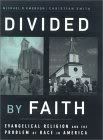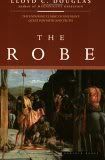In this chapter, Simon discusses neighbor love. This, of course, begs the question of "who is our neighbor?", which Jesus answered in the parable of the good Samaritan and which I will summarize here as "Everyone."
Neighbor love, like self-love, involves imagination, a creative vision into the destiny of the other. (Remembering that destiny, as defined by Simon, is that which God intends for our lives; our "true story.") We are called to do this even when there is little overt evidence that the destiny is even in progress, and we can find no easily identifiable value in the other person. But "because Christians refuse to see people from a merely human point of view (2 Cor 5:1-17), we take this exercise in imagination to be more than fiction-making." (74) Such fiction-making would result in a superficial sentimentality, which "assumes that thinking nice thoughts will solve all problems, that pretending that things are less grim than they are will somehow magically make them better." (74) It requires a much deeper transformation in our thinking, a willingness to see that appears to be pure foolishness much of the time.
There is a crucial distinction she is making here that I think is important to point out, especially because it is a trap I find myself falling into: We are not loving others in spite of what we see, thereby affirming the unworthiness of the object on at least some level, but instead we are perceiving the actual value of the other person. (There is a whole discussion she goes into on the popular Christian dichotomy between agape and eros, and proposes something of a synthesis between them (caritas), akin to that which Augustine and Calvin talked about. An interesting read, but I won't get into it here.)
The relationship between love and humility comes to the fore again as we look at the flip side: our willingness to receive love. Most of us have experienced how hard it is to accept love that we don't feel we deserve. As C.S. Lewis says in The Four Loves, "how difficult it is to receive, and to go on receiving, from others a love that does not depend on our own attraction!" Plus, many of us are sometimes overwhelmed a by a sense of guilt and shame. There is a certain pride in hanging onto that. For me, accepting the grace and forgiveness of God was one of the hardest things I've ever done (and continue to do). To accept the loss of myself as my own savior was tough, but ultimately freeing. And if it's that difficult to accept from God, how much more so from other fallen people! But it seems here that a similar 'giving up' is required for us to participate in a Christian vision of neighbor love. It would be a very condescending version of 'love' to give to all and accept from only a few. It requires much more imagination to, for example, participate in the good act of volunteering at a soup kitchen and see the street people there as having something important to offer you by their love, and not just you coming in to offer something to them.
To love people is to respect them... I'll finish with this definition of respect from a footnote that quotes Paul Wadell summarizing Enda McDonagh on page 74 (how's that for a convoluted reference?)
To respect another person is to take whatever time is necessary to see their goodness. Respect literally means to ‘look again,’ to ‘take a second look.' It means we cannot settle for first impressions, or casually dismiss people from our lives. To have respect for someone is to look far enough into the person to see their goodness, even if that goodness is more a promise than a fact. We respect them when we call them to this goodness and commit ourselves to eliciting it.











2 comments:
Hi Jasie-
Wonderful review and great reminders of how we're really supposed to love each other. i especially liked the closing quote and definition of "respect". That was so convicting to me - how many times a day do I just "casually dismiss" people without thinking about or looking or "imagining" their true value and the part that they are playing in God's story? I need to make a flash card out of that quote! (I also need to get this book and start reading it with you-my bad!)
I'm going to our little book club this morning at Main St. (it's been so long ago that we read the book the oly thing we'll probably remember about it is that the main character's name is Pi,so THAT ought to be a fascinating discussion!). Anyway, I'll share that quote with them-they'll appreciate it.
Love you and have a great day!
Mom
Jasie,
Thanks for this helpful analysis of chapter three.
In regards to the sentence, "There is a crucial distinction...." I wonder if some of what we deal with here is a matter of focus. What should have and receive greater focus and that which should have and receive lesser. Maybe some configuration of "in spite of" and "because of" would be better, with a greater focus on the "because of"?
Post a Comment